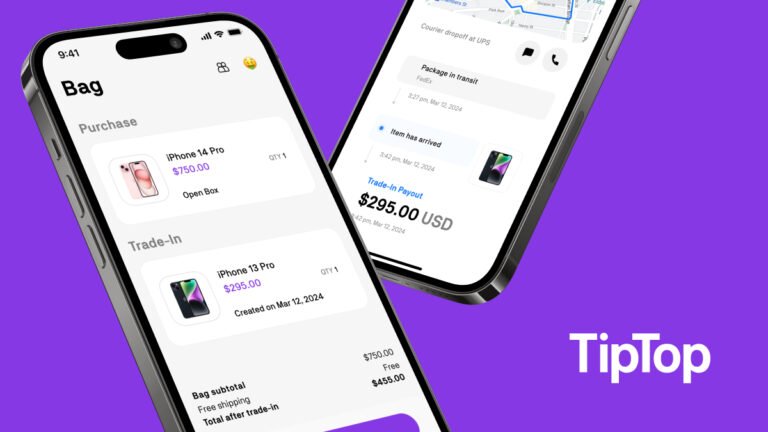
When prolific venture capital firms Andreessen Horowitz and Lerer Hippeau announced in early 2024 they were pivoting away from consumer tech, it sparked a social media debate about whether there are still opportunities.
Jumping in, Maven will be there helping to build the next game-changing health AI company or robotics AI consumer business, he said.
Scheinman started the firm in 2013 and brought in Deshpande soon after to focus on consumer AI and personalized medicine.
They brought in investment partner Robert Ravanshenas in 2015, and again in 2020 after a stint in a startup operating role, to focus on fintech, longevity and consumer AI.
Together the trio remains committed to seeding similar consumer tech trends, including applications of AI, personalized healthcare, climate and sustainability, family technology and fintech.

Amazon has been fined in Poland for misleading consumers about the conclusion of sales contracts on its online marketplace.
For Amazon, the conclusion of a sales contract only occurs once it has sent information about the actual shipment.
“Thus, Amazon misleads consumers as to the moment of conclusion of the sales contract,” the authority wrote [in Polish; this is a machine translation].
It also found the e-commerce giant failed to provide information about the “Delivery Guarantee” in the purchase confirmation sent to shoppers.
Amazon was contacted for comment on the sanction but at the time of writing it had not responded.

TipTop, the new app from Postmates’ founder and CEO, now lets you buy devices with trade-ins and cashTipTop, the startup that offers instant cash for electronics, is launching TipTop Shop: a way for users to purchase and trade in devices.
TipTop Shop builds on the success of TipTop Cash, which was released late last year.
It lets people get instant payouts for electronic devices like smartphones, iPads, cameras, game systems and more.
People can buy new, open-box and refurbished devices through cash and trade-ins.
Unlike on platforms like eBay and Facebook Marketplace, consumers aren’t buying products on TipTop from other consumers, as the devices are owned by the startup itself.

As we’ve reported before Meta’s self-serving ‘consent or cough up’ offer is already facing a number of other GDPR complaints.
Today’s complaints are not the first filed against Meta’s consent or pay tactic by consumer protection groups — some of which argue it’s breaching the bloc’s rules on consumer protection, too.
However its blog post defending the controversial tactic does not make any mention of how it complies with EU consumer protection law.
So another very pertinent question, vis-a-vis Meta’s consent or pay offer in the EU, is what the Commission will do?
*The BEUC members filing GDPR complaints against Meta are: CECU, dTest, EKPIZO, Forbrugerrådet Tænk, Forbrukerrådet, Poprad, Spoločnosť ochrany spotrebiteľov (S.O.S.

The Federal Trade Commission (FTC) on Thursday said it will ban the antivirus giant Avast from selling consumers’ web browsing data to advertisers after Avast claimed its products would prevent its users from online tracking.
Avast also settled the federal regulator’s charges for $16.5 million, which the FTC said will provide redress for Avast’s users whose sensitive browsing data was improperly sold on to ad giants and data brokers.
But the FTC alleged that Avast sold consumers’ browsing data through its now-shuttered subsidiary, Jumpshot, to more than a hundred other companies, making Avast tens of millions of dollars in revenue.
The regulator said that the browsing data that Jumpshot sold revealed consumers’ religious beliefs, health concerns, political leanings, their location, and other sensitive information.
The reports found Jumpshot was also selling access to its users’ click data, including the specific web links that its users were clicking on.

For example, the MTA transit system in New York collected more than 18,000 lost items from 2018 to 2023 — and that time includes when people were sheltering in place for the pandemic.
Boomerang thinks AI can fix lost and found.
The Miami-based startup built software that uses machine learning to match pictures and descriptions of lost items.
Customers, which can range from gyms to theme parks, upload pictures and descriptions of their lost and found while consumers do the same for the item they’ve lost.
If there is a match, consumers can choose to pick up their items or have them shipped.

The U.S. Federal Trade Commission has continued its crackdown on data brokers with a settlement banning data aggregation company InMarket from selling consumers’ precise location data.
Texas-based InMarket, which debuted as CheckPoints at TechCrunch Disrupt 2010, provides a marketing platform that collects sensitive consumer data — including location data, purchasing history, and demographic information — which brands and advertising agencies use to facilitate targeted advertising on mobile devices.
Based on the data that InMarket collects, brands can target shoppers who are likely to be low-income millennials or Christian churchgoers, according to the FTC.
In its proposed order unveiled Thursday, the FTC accused InMarket of failing to obtain users’ consent before using their location data for marketing and advertising purposes.
That order marked the first time the regulator struck a deal to prohibit a company from selling sensitive location data.

The U.S. Federal Trade Commission has banned the data broker X-Mode Social from sharing or selling users’ sensitive location data, the federal regulator said Tuesday.
The settlement will also require the data broker to delete or destroy all the location data it previously collected, along with any products produced from this data, unless the company obtains consumer consent or ensures the data has been de-identified.
X-Mode buys and sells access to the location data collected from ordinary phone apps.
While just one of many organizations in the multibillion-dollar data broker industry, X-Mode faced scrutiny for selling access to the commercial location data of Americans’ past movements to the U.S. government and military contractors.
Since its inception, X-Mode has imposed strict contractual terms on all data customers prohibiting them from associating its data with sensitive locations such as healthcare facilities.

The convergence of Big Tech, finance, and government has enabled a new data economy.
The first movement in the megacycle was the General Data Protection Regulation (GDPR) when the EU championed data privacy in 2016.
Brazil stepped up and created comparative data privacy rights and is investing heavily in data infrastructure and regulation to enable citizens to capitalize on their personal data.
Data privacy will evolve into data ownership rights in 2024Our data could power an entirely new data economy that could benefit every person who participates in it or not, based on their decision-making.
The next tech megacycle — one in which everyday citizens worldwide own and control their personal data that powers AI — began about a year before the global COVID pandemic.

Kenyan e-commerce and fintech platform for mass market consumers Copia Global has appointed John Lazar, the ex-CEO of Metaswitch, a Microsoft subsidiary, to its board off the back of $20 million in new funding.
Without the capital to get it all the way to profitability, it made sense to hold off there.
Both companies have encountered headwinds that question the sustainability of B2C e-commerce in Africa even though they operate different e-commerce models.
However, both platforms are confronted with distinct objectives: Copia strives to achieve profitability in a single market, Kenya, while Jumia has to battle it out across 11 markets.
The founder and chairman noted that once the e-commerce company achieves profitability in the East African market, it plans to extend operations to 14 other countries it has strategically mapped out.













